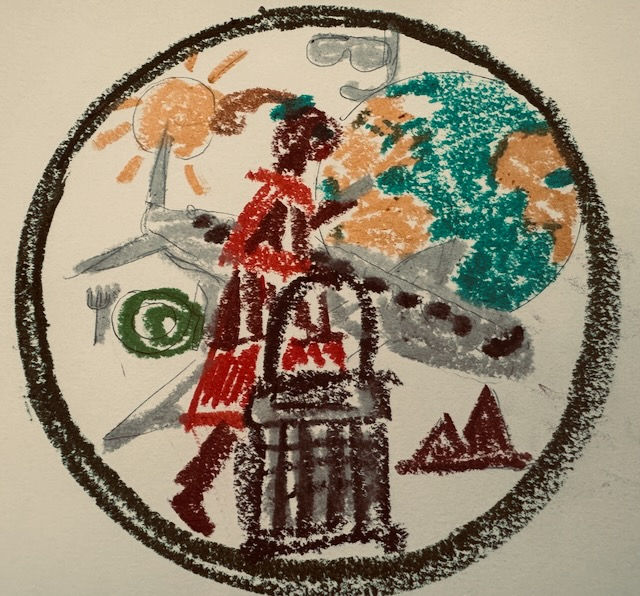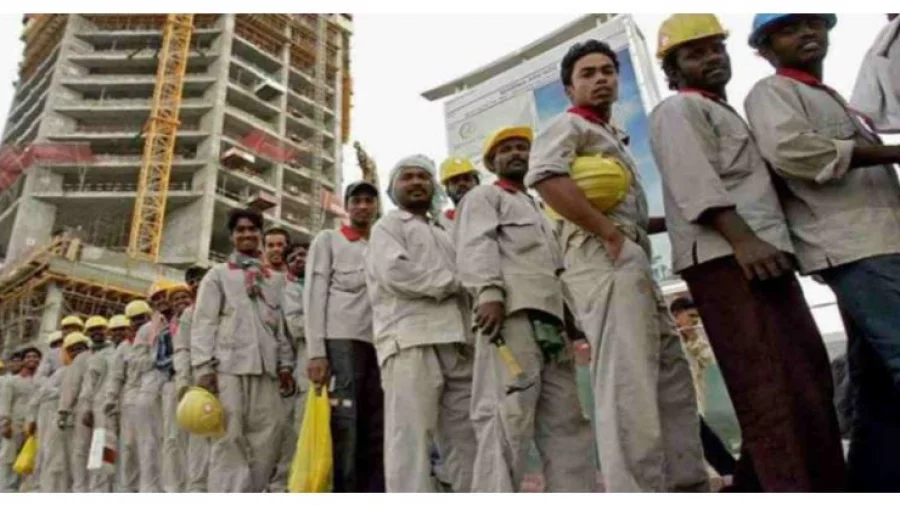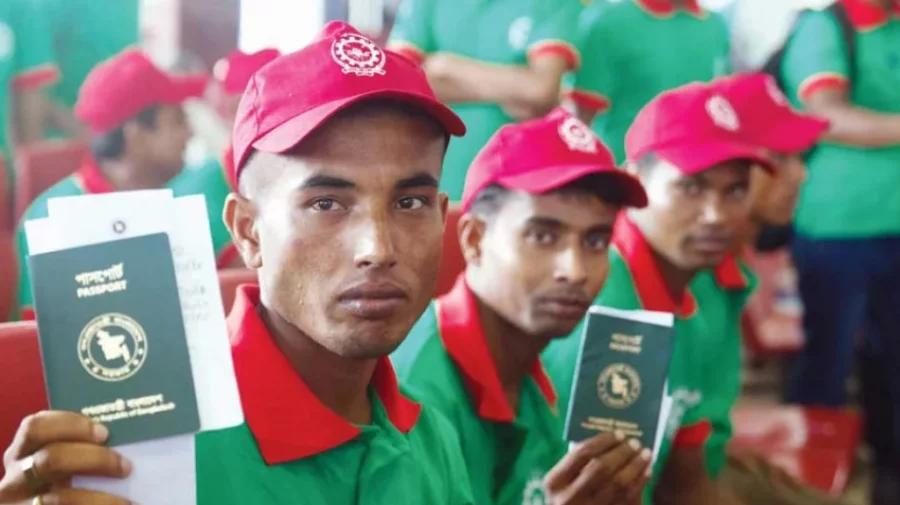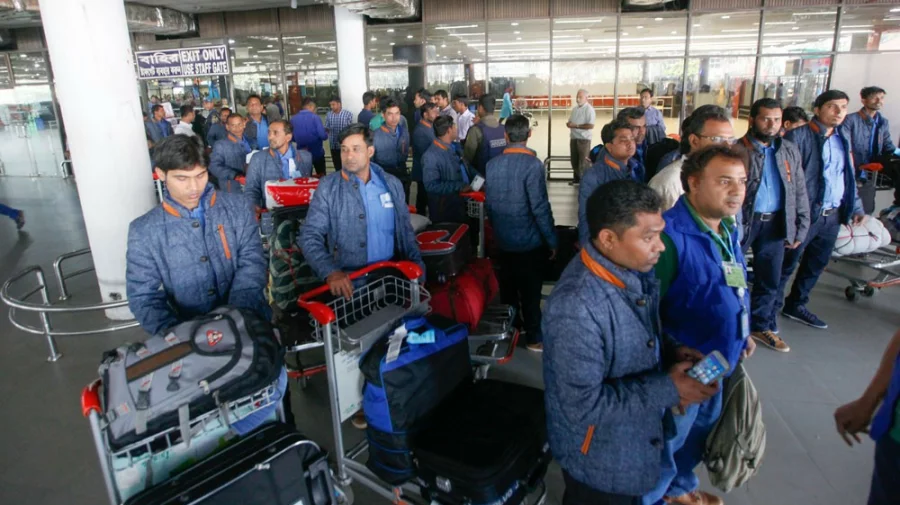
Have you ever noticed that friends are far more interested to hear about things that go wrong with your trips than things that go well? The upside of nightmare travel is the birth of a good story. One that is sometimes comical, other times surreal, and even haunting. In my case, it was a mix of all three.
In preparing for my upcoming 30+ hour flight to Bangladesh, I came across an email I wrote about my flight from Dhaka to Dubai in September 2000. I’m glad I documented it fresh off the plane and will share what I wrote, as well as my reflections.
When I wrote and reread my story of an airline flight gone bad, I laughed. But in sharing it here, I was swept with shame. I’ve finally learned never to point fingers or laugh at others, only ourselves. A lesson my mother tried to demonstrate to me as a twelve-year-old when I laughed at a young girl who walked out of a restroom with her dress tucked into her underwear. My mom caught up with the child as she walked down the church hallway in front of us, and gently pulled the back of her skirt over her underwear, giving the girl a gentle pat on the back and a smile. She looked at me in disappointment. I got the message: To laugh at others is a sign of relief that it didn’t happen to us.
My email written September 25, 2000 stated, “If I were a writer, the Emirates Airbus, which shuttles cheap migrant labor from Dhaka to the Middle East would have held a treasure trove of rich deposits for future stories.” In reality, it was experiences like this over thirty years living and traveling abroad that compelled me to write letters to family and friends, and to keep a journal. The flight I took from Dhaka to Dubai ranks in my top five experiences of flights gone bad. However, it taught me something.
Here goes the tale:

After being called to board the Emirates plane in Dhaka, Bangladesh, the flight attendant herded more than one hundred Bangladeshi men in a line to the right and motioned for the rest of us – me, three Bangladeshi women traveling alone, two Bangladeshi couples, a European business man, and a well-dressed Bangladeshi business man – to move to the left.
A dozen men on the right were wearing orange prison-style jumpsuits with a construction company logo. A few more were dressed in long Islamic robes with turbans and long sashes down their backs. The bulk of travelers corralled to the right were a paper clip chain of short statured men with mustaches, freshly cut black hair, and button-front dress shirts- some old and faded to a greyish white and others still showing the folded creases of a new shirt fresh from the package. Each man was wearing crisp dress pants and carrying a small black document bag dangling from his wrist. The older men among them had bruises on the forehead from years of prayer.

The flight attendant ordered the men to place their small nylon document bags on the floor in a row to the right and she quickly drew an X on each as if to show they had gone through her security check. This was pre-9/11 but even then I thought, “If there’s a hijacker among them, he’ll have a knife to her throat in an hour.”
I had heard that Emirates flights are excellent but these travelers had been fortunate enough to fly a route other than a migrant guest worker shuttle, or privileged enough to sit in business class. I was back with the action. It was a lovely new plane, beautifully decorated in shades of beige and blues, with a mural of desert sands topped by a grey-blue sky. The seats were wide and luxurious, and each had a touch screen TV which was new concept in those days. The interior was squeaky clean.
I was in the window seat of a two-seater in the first row past the toilet, an interesting spot. As I gazed around the cabin, I saw that most of the men were unable to read the boarding pass seat numbers and assumed they should sit anywhere they like. Every time a flight attendant tried to intervene, the men looked horrified as they were unaccustomed to interacting with women in authority, or any woman for that matter. Out of the chaos, a handful of seasoned migrant worker travelers finally began to officiate the matter and sorted the men here and there to their assigned seat.
After most passengers were seated, it appeared that the seat next to me would remain empty. Suddenly, wide-eyed, anxious looking man appeared, and twirled several times in confusion and panic in the aisle beside the empty seat. One of the informal officiants looked at his ticket and yelled for him to sit down next to me. He did so, reluctantly.
I made eye contact with him to offer an encouraging smile. His horrified expression told me it was the wrong thing to do. In Muslim culture a woman doesn’t sit arm to arm with a man to whom she is not married, and certainly does not make eye contact. He probably wondered if I was being suggestive or insane.
It was a bizarre experience to sit next to my neighbor who could not buckle his seat belt but forbade the flight attendant from helping him. He preferred to sit squatted in his seat, pounding at the touch screen for five hours, and watching the steady stream of men who kept jumping from their seats once they discovered the toilet.
I then realized that only a few people on this plane had flown before. Most, coming straight from a village, had never seen or used a flush toilet. They could not figure out that you push the door to open it and kept pulling the door off the track, which the crew had to repair throughout the journey. They also did not realize that the green light indicated vacant and the red meant occupied, nor did they fathom the lock system, which caused some yelling, when others opened the door on a person using the toilet. Periodically a flight attendant wearing rubber gloves would appear with a steaming kettle of water and pour it over the interior. While the attendants looked exhausted, the men were having a wonderful time, exploring everything on board, talking loudly to one another across the plane, much like school children on a field trip.
During the flight, my guy pulled out a cigarette, lit it, and started to smoke. I grabbed his arm with my left hand, and squeaked, “No!” I had unintentionally used the obscenest gesture (left hand touching) one could offer. He became so horrified that it looked as if he would leap from the plane. He didn’t realize that I was after his cigarette, assuming it was his right to smoke. I called to a nearby flight attendant who forced him to put it out. The guy looked like he was going bananas at such madness.
I was worried about how he would handle the food service, but to my amazement he ate his dahl, rice, and goat stew with a spoon rather than eating in traditional manner with the right hand when there is no fresh fried chapatti available to scoop food- a delicious (but high calorie) custom in South Asia. By the time the second mealtime rolled around, he had it all figured out and went straight for the tiny little creamer tin (for coffee), opened it and slurped it down as if a delicious treat. South Asians love milk products, yogurt, and tea brewed with milk instead of water.
Periodically my fellow passenger would break out in a song of prayer to Allah and then bang at the monitor some more. It was a rather complicated gadget if you do not read English and there was only one channel in Hindi, which he would have been able to understand but when he located it and then hit it again to perhaps increase the volume it would switch to other modes, so the entire scenario was repeated in circle for hours.
Finally, he sacked out and started snoring. I commented to a flight attendant that I found it interesting that so many people on board had never been on a plane. “Interesting to you, a nightmare for us,” she said.
Perhaps it was a nightmare for my fellow travelers, as well. For these men, this flight was their middle passage from a small village to an international super-city. In each case an extended family or a village pooled money for the traveler to pay a middleman who linked them with a contractor in UAE, or other middle eastern country, and arranged the passage. Over time the migrant worker will repay the lenders with interest through remittances home.
Dhaka Tribune Photos
With ticket and passport in hand, a job contract, and promise of a job in close proximity to Mecca, their dreams seem to be unfolding. Generally, the workers’ contracts include a paid visit home after one or two years of labor, but often the possibility of returning home is dimmed due to the Kafala system, which gives employers disproportionate control over migrant workers’ immigration and employment status and thereby their lives. Sometimes companies fold, as they did during Covid, and leave migrant workers stranded without documents or money to leave. In many cases, this will be a flight of no return.
According to Human Rights Watch, United Arab Emirates’ migrant workers, which make up 88% of the population, are governed by the restrictive labor governance system known as the kafala (sponsorship) system. Human Rights Watch has documented how the kafala system facilitates abuse and exploitation. It restricts job mobility, enables employers to routinely confiscate workers’ passports, and punishes workers who leave their employers, including to escape abuse, with the risk of deportation and detention. Wage theft and exorbitant recruitment fees are widespread, undermining the benefits of emigrating to the UAE for better earnings.
As my seatmate slept, his face took on peaceful repose. I wished I could ask his life story, to know his ideas about what awaited him in the UAE, and what he hoped his future will be like. I remembered the panic on his face when he boarded and wondered what incidents occurred by which he almost missed the plane and had to board alone with no idea what to do. I thought about the greed that fuels human trafficking, and the desperation that lures people like this man to sign up, in spite of risks.
To reach their aspirations, Bangladeshi migrant workers put a lot at stake. Leaving behind their families and children unattended in a predominantly male-dominated society is only part of their stress (World Bank 2017). While each hopes for a ticket to life success, the reality upon arrival often reveals a dead end.
Suddenly, what at first seemed like a joke about these immigrants turned back at me in a question, “What gives you the privilege to be the experienced traveler with pretty clothes and a journal, judging this man’s lack of sophistication and desperation?” I felt ashamed. I remembered my own first flight from Raleigh Durham Airport, at age 17, to visit my boyfriend, Tom, in Pittsburgh. When the plane landed in Pittsburgh, I didn’t understand that I was supposed to get off the plane because no one else around me stood to leave. To my shock, the plane took off for Detroit with me on board, leaving dear Tom standing at the arrivals gate wondering what happened to his stupid hick girlfriend. The joke was on me. Those kind are ok.
Over the years, I’ve slowly learned to be attentive to the world around me, respectfully observing and writing about different culture and landscapes. This has trained me to look more carefully at my own culture and lifestyle, and to realize how others’ see Americans as whacky. For example, Asian cultures are alarmed that Americans walk into their homes wearing street shoes, soiling the sanctity and cleanliness of the home. Latin Americans, who spend every Sunday afternoon with extended family, wonder how we could choose friends over family bonds. The novel, Americanah, is filled with anecdotes about Nigerians trying to understand the weird practices of Americans. The story’s narrator makes a living writing a blog to explain America to West African emigrants. It is filled with laugh-out-loud descriptions of American ways, while the narrator balances that with laughing at her own foibles.
If, like me, you initially laughed at my flight story, join me in remembering this quote, sometimes associated with John Bradford, a preacher who lived 1510-1555, spoken as he observed convicts being led to the scaffold, deeply saddened by the laughter of the watching crowd:
Never laugh at the misfortune of others. But for the grace of God, go I.
This story, about an airline flight I endured, was initially told in comic relief and ended up providing some deep reflection. Next time you have a bad flight, look at the upside – an interesting story to tell and something to digest for the road ahead.
Written by Deborah Llewellyn
Deborah's 3 Muses Blogs
21 January 2024
Notes and Credits:
Photosof airline from Emirates Stock Photos.
I have flown Emirates many times. It consistently offers a great flight experience for travelers.
Bangladesh is the most densely populated country in the world. Immigrant workers, sending remittances home, contribute to the government’s Sustainable Development Goals. Due to the demand and employment opportunities, the system continues. Fortunately, many organizations, such as BRAC and the Bangladeshi Government, are providing better training and awareness of rights before Bangladeshi migrants leave their country. Various human watchdog agencies are working to assist workers in the contracting process and negotiating with other governments to better protect immigrant workers.
Not to point a finger at Bangladesh, consider recent articles in U.S. news sources on numbers of migrant children working in poultry processing plants, and the poor monitoring systems in place to catch factory owners who knowingly hire children at low wages, and shift their working hours so as not to be seen by inspectors. Illegal immigrants, desperate to work hard for a better life, are willing to take these risks. Guest worker programs around the world need to be formalized to protect workers and hold the employers accountable.
I want to thank Faiyaz Khan, who is like a second son to me, for helping me to present this story with sincerity, kindness, and appreciation for the dreams and suffering of others. (Faiyaz, pictured above, now lives in Toronto and works internationally as an architect. He was my son's closest friend over the five years we lived in Bangladesh. He remains a navigator to both Chas and myself.)
Faiyaz told me that one of his favorite poets, Md Mukul Hossine, was a Bangladeshi migrant worker in Singapore. Readers might be interested to check out his poetry book, Me Migrant.
Me Migrant features the poems of Md Mukul Hossine – poems originally written in Bengali by Mukul, transcreated by Singapore poet Cyril Wong based on English translations by Fariha Imran and Farouk Ahammed. It represents the voice of hope and inclusiveness, of longing and dreaming, of service and heart. This collection was born of the friendship between volunteers of community clinic HealthServe and foreign construction workers. Dr Tan Lai Yong, a volunteer medical doctor at Healthserve.
“Along the way, our volunteers have grown to appreciate the resilience of the foreign workers who come to our island home, their devotion to and love for their own families left behind in their homeland. Our respect for their labour in building Singapore grew. Along the way, we also learnt about the many talents that they have. Talents that lay hidden behind their construction helmets and protective visors; talents that remain hidden because of our stereotyping.” – Dr Tan Lai Yong
Me Migrant
Beyond borders
Mislaying smiles
Dawn to dusk
then dawn again
M. Hossine










These 3 musings are real gift to those of us who are not such intrepid world travelers. Thank you as always, dear Deborah! 💗
Thanks for this gift of a story that gives me pause and brings reflection on privilege, culture and religion and reminds me not to get lost in my own life story—but continue to treasure the stories of others for what they can teach me🙏